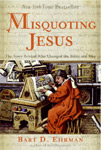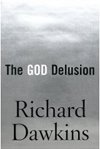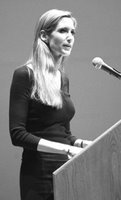Re-Direction
If you have been directed here via my profile area, well, this is my site but it is not my MAIN one. I have not written on godpuddle for quite some time.
My apologies to anyone who might even possibly, remotely wish I had!
My main site is at Bookpuddle.
All the best to you, dear reader-friend.

New Ehrman Interview
 Hey, the recent Bart Ehrman interview, on Tapestry, is now available.
Hey, the recent Bart Ehrman interview, on Tapestry, is now available.
CLICK HERE!********
Be Fruitful and Overpopulate.
 John Shelby Spong.
John Shelby Spong.
This retired Bishop of Newark (Episcopal Church) once claimed that he was finished with the writing of books. I am so glad that here in what he calls his “third half of life” he has given us yet another insightful look into the relevant theological issues of our day and age.
His most recent book [2005] is called The Sins Of Scripture: Exposing The Bible’s Texts of Hate to Reveal the God of Love.
Scorcher of a title huh?
Spong, on the face of it, can appear to some to be almost “anti-Christian” but when you really examine his work and read of his personal convictions, you find that a much better summation of his ideas would be “anti-ignorance”.
He is all about asking the needful questions, and doing what he can to dispel the ignorance of invalid answers.
As a “believer in exile” myself, I find in my own life that I am increasingly identifying with Spongism.
Anyhoo... the specific issue that I wanted to point out from this new book is neither all that controversial nor potentially divisive nor heretical enough to burn anyone at the stake over.
It is just.... interesting.
It comes from Section 2 of the book, in which Spong is discussing The Bible And The Environment, and for his “terrible text” he is looking at Genesis 1:28, which says “Be fruitful and multiply, and fill the earth and subdue it.”
Spong’s argument is that at one time (namely, the time at which this Scripture was written, and several millennia thereafter), the injunction had a certain validity and purpose which our current environmental situation can no longer support in an ad infinitum sort of way.
In ancient times, it is understandable that population growth was a necessary part of human survival. There just weren’t that many people around. Not only this, but they died a lot earlier (younger) than people tend to die today in most parts of the world. Nowadays worldwide population is growing so exponentially, that if the earth were a bus, someone ought to put the brakes on!
In a nutshell, the age-old enemies of human survival have been largely defeated, one after another.
He says:
The proof of this is recognized when one looks at the statistics of human population. Human life emerged on this planet, according to the best estimates of anthropologists, between one and two million years ago. [This is me here, not Spong... cutting in to say that I am fully aware that biblical literalists reading that statement would already be giving birth to a sacred cow over it, but I would remind them that it is ignorance we are trying to expel here, not cattle! Back to Spong now...] Yet it took from that point of origin until 1750 CE [Common Era, same as saying, AD, except more religiously correct to say CE] for the number of human beings to top one billion. It then took only about one hundred and eighty years for the human population to reach the two billion number plateau, which demographers believe was achieved around the year 1930 CE. It then took only forty years until 1970 to add the third billion. Since then, in the thirty-plus years between 1970 and the present, the world’s population has doubled to approximately six billion people. Even now, when the rate of growth has finally begun to slow, the actual expansion of human beings has not.
Current estimates are that before the twenty-first century fades into history, the human population will reach a figure somewhere between nine and ten billion people. There are still some who do not see this as an impending disaster.
-- from page 36-37. The Sins of Scripture, John Shelby Spong, 2005 –
Spong is not telling people here that there is something wrong with their desire to have children, nor is he implying that people ought to quit having children, or feel guilty that they are contributing to the end of the world because they are impregnated or are impregnating. He is merely pointing out that at one time, the biblical injunction presented in Genesis was necessary to enable the human race to survive.
Those days are over. How long are we going to continue being fruitful?
Till there is standing room only?
Millions of people around the world are still interpreting this particular scripture as though it were a present-day command to avoid methods of contraception, and I believe that this is very much a distortion of its original context and intention.
I agree with Spong when he says:
Now it [Gen.1:28] must be seen as as nothing less than a prescription for human genocide. Once it was accepted as the “Word of God.” Now it must be viewed as a terrible and life-threatening text.
If followed literally and applied worldwide this biblical verse would guarantee our annihilation. Therefore we need to be careful of what we mean when we declare that it is the “Word of the Lord.”************
Wise Words
 The true value of a man is not determined by his possession, supposed or real, of the truth, but rather by his sincere exertion to get to the truth. It is not possession of truth but rather the pursuit of truth by which he extends his powers and in which his ever growing perfectibility is to be found. Possession makes one passive, indolent, and proud. If God were to hold all truth concealed in his right hand and in his left hand only the steady and diligent drive for truth, albeit with the proviso that I will always and forever error in the process, and to offer me the choice, I will in all humility take the left hand and say, “Father, I will take this. The pure truth is for you alone.”
The true value of a man is not determined by his possession, supposed or real, of the truth, but rather by his sincere exertion to get to the truth. It is not possession of truth but rather the pursuit of truth by which he extends his powers and in which his ever growing perfectibility is to be found. Possession makes one passive, indolent, and proud. If God were to hold all truth concealed in his right hand and in his left hand only the steady and diligent drive for truth, albeit with the proviso that I will always and forever error in the process, and to offer me the choice, I will in all humility take the left hand and say, “Father, I will take this. The pure truth is for you alone.”
-- Gotthold Lessing (1729-1781) --
The God Delusion
 So far, two friends of mine [I only have four, so this constitutes a full 50% of my entire social network…] have asked me, on separate occassions, about the shiny new Richard Dawkins book, The God Delusion.
So far, two friends of mine [I only have four, so this constitutes a full 50% of my entire social network…] have asked me, on separate occassions, about the shiny new Richard Dawkins book, The God Delusion.
Basically, I’ve been asked, “Should we, [the Believers in Exile], read this thing?”
And both times my answer has been, “I have no idea.”
I’ve never read anything by Richard Dawkins, and I know next to nothing of him. There are so many authors writing nowadays about the ideological war between Science and Religion that it is impossible for me to keep up to what is being set out on the bookstore shelves.
However, I am at a bookstore right now, as I write this. So I am taking a look at the book.
It is very shiny. Wonderfully matches my Mac Powerbook G4!
Just leafing through the thing, and reading here and there, I guess I will take the jacket blurb’s description of Dawkins at face value. It claims that he is “the world’s most prominent atheist.”
And a scientist. This book seems to be quite forcefully arguing that a belief in God is not just wrong but potentially deadly. Dawkins argues for the abolition of religion as the only hope for the healthy maintenance of mankind. In the preface, we read, “Imagine, with John Lennon, a world with no religion. Imagine no suicide bombers, no 9/11, no 7/7, no Crusades, no Gunpowder Plot…” etc.
As readers of this blog will know, I am no stranger to this argument, because it is similar to the writings and ideas of Sam Harris, an author I have come to greatly appreciate. I think it must be admitted by all rational-thinking people that religious zeal can cause a multitude of “sins.” At one point, Dawkins even quotes Blaise Pascal [yes, he of the wager] as saying, “Men never do evil so completely and cheerfully as when they do it from religious conviction.”
Yes, yes, assuredly, and verily verily…. yes.
So I am paging through the book, browsing, as it were.
Then, a neat thing happened as I walked over to the Starbucks section of the store, to get another coffee. I glanced down at a table where someone had left a copy of New Scientist, the magazine. Picking it up, I opened directly to a review of The God Delusion, written by moral philosopher and author, Mary Midgley.
Fascinating stuff.
The general tone is a bit critical [of Dawkins] and I will get to that part, soon.
But first, Midgley points out that in the three evilist [← my word] regimes of the 20th Century [Nazi Germany, Pol Pot’s Cambodia, and Stalinist Russia], the removal of religion had not helped at all. She says, “The roots of great crimes plainly lie far deeper than the doctrines people use to justify them.”
I keep reading…. walk back to my own table with a new coffee, and this magazine….
I will greatly summarize here by saying that she…. hmmm, how can I say it…. she points out that Dawkins has a very difficult time with the type of “believer” who may say they do not care much for the doctrine of the Trinity or the historical truth of the gospels. ← I myself am this type of mysterious quasi-believer, so my antennae go up here…! Dawkins declares flatly that people like me [who would say the above, and much more] cannot possibly mean what they say. We cannot be “believers”. As scientists, we must be atheists. Midgley says, “It seems not to have struck Dawkins that academic science is only a small, specialised, dependent part of what anybody knows.”
Aha!
See, she goes on to point out that when we use the term “fundamentalist” to describe the sold-out, nutso-believer/fanatic out there, we ought to realize that there is also another type of “fundamentalist” running amok! This would be the atheistic “fundamentalist.” [By the way, Midgley does not use this terminology, I am wildly paraphrasing at this point, utilizing a combination of rabid eisegesis and possibly illegal bloggistic license!]
In other words, we [including Dawkins himself] can err just as badly on the opposite end of whatever spectrum we are dealing with here.
The spectrum of “belief ← → non-belief” I will call it.
And to elucidate her reasons for saying this, please allow me to quote directly from the latter part of her review itself. It is, in my opinion, such good stuff that it merits regurgitation in its fullness, here:
“Most human knowledge is tacit knowledge – habitual assumptions, constantly updated and checked by experience, but far too general and informal ever to be fully tested. We assume, for instance, that nature will go on being regular, that other people are conscious and that their testimony can generally be trusted. Without such assumptions neither science nor any other study could ever get off the ground, and nor could everyday life.
When we build on these foundations we necessarily use imaginative structures – powerful ideas which can be called myths, which are not lies, but graphic thought-patterns that shape and guide our thinking. This is not irrational: the process of using these structures is a necessary preparation for reasoning. Thus the selfish gene is a powerful idea, so are the Science-Religion war, Gaia, natural selection, progress, and the hidden hand of the market.
With the largest, most puzzling questions, we have no choice but to proceed in mythical language which cannot be explained in detail at all, but which serves to indicate what sort of spiritual universe we percieve ourselves to be living in. This is the province of religion. Adding God is not, as Dawkins thinks, adding an illicit extra item to the cosmos, it is perceiving the whole thing differently.
For a long time, this kind of language was reasonably well understood. Since the mid-19th century, however, there has been a disastrous attempt to get rid of it, keeping only literal statements of fact. This is, of course, the root of religious fundamentalism, which tries, absurdly, to treat the whole of that strange compilation, the Bible, as literal fact. Yet in so doing it is only responding to a less obvious fundamentalism on the scientistic side, which claims that our knowledge reduces to one fundamental form – the literal statements of science. Both extremes show a similarly crass refusal to admit the complexity of life.
Dawkins is, of course, quite right to express horror at Biblical fundamentalism, especially in the neocon form that centres on the book of Revelation. But it is not possible to attack this target properly while also conducting a wider, cluster-bomb onslaught on everything that can be called religion. Since this particular bad form of religion is spreading rapidly in the world, we urgently need to understand it: not just to denounce it but to grasp much better than we do now why people find it attractive. It is not enough to say, as Dawkins does, that they are being childish.
We also need to ask why they have found the other attitudes that are open to them inadequate. As I have suggested, this means becoming more aware of the inadequacies of our own way of life, which are obvious to them and which put them off the opinions that we profess. What we need, in fact, is a bit more self-knowledge.” **
Amen to that!
Having said all this, and having read all of this… does it make me, as a reader, want to read the Dawkins book MORE, or LESS?
→ MORE!
Like a cat, I am drawn to shiny things.
** From Imagine There’s No Heaven, by Mary Midgley. -- A review of Richard Dawkins, The God Delusion. New Scientist Magazine, Oct.7-13, 2006. pp.50-51.**********
On Certainty
 “Of coffee I am certain. Of tea? Not so.”
“Of coffee I am certain. Of tea? Not so.”
-- Cipriano –
Been thinking about certainty, as of late. The reasons are many, but they would include a “certain” confluence of ideas being bandied about by fellow bloggers, along with the haunting relevance of a statement made in the first chapter of the book I am currently reading.
The book is John Shelby Spong’s (1996), Liberating The Gospels: Reading The Bible With Jewish Eyes.
In setting out his objectives for the book, Spong states, on page 20-21, “…I offer you something that I have come to believe is better than the religious security system of the past. I offer the exhilarating insecurity of a journey without boundaries or goals. I offer the radical nature of honesty and the intense humanity that is found in seeking truth freely apart from the authoritative pronouncements of yesterday.”
Wow.
When I read that, I was reminded of why I like his books and his ideas.
“The exhilarating insecurity of a journey without boundaries or goals.”
That is exactly the kind of journey I want to be on [and believe that I am on] in my process of never-ending idea displacement.
By “idea displacement” I mean that [in the formation of one’s spiritual map or ideological structure] one never arrives at a place where the journey is over. One never closes up shop and believes that they are “done lookin’!”
Along with this, [and it is evident in what Spong is suggesting, above] one does not attach oneself to a limiting ideology [“religious security system”] that will restrict the reception and/or rejection of ideas that are either surfacing or becoming obsolete. And in all of this, it must be emphasized that we are, at all times, talking about the individual. True spiritual enlightenment has nothing to do with groupspeak. Neither has it anything to do with the maintenance of harmony within the phalanx. Idea displacement [and subsequent spiritual enlightenment] only occurs in the individual.
Whether we are aware of it or not, idea displacement is the most individual act any of us perform, or should.
Simply put, it is an attitude of willingness, whereby less tenable ideas are exchanged for better ones.
Anything less, is certainty.
And what is certainty?
Well, I like the way Ambrose Bierce defines it, way back in the 1800’s, in The Devil’s Dictionary. → “Mistaken at the top of one’s voice.”
Exactly.
And who can deny the truth contained in this following statement, spoken by Bertrand Russell: “Most of the greatest evils that man has inflicted upon man have come through people feeling quite certain about something which, in fact, was false.”
Now I turn to my fellow bloggers, who are acknowledging similar things, to prove that it is not only geniuses like the above-mentioned notables, but also just everyday absolute yahoos like myself and these other guys here, that are catching a whiff of the stench of certainty, and choosing to turn toward the fresher air of knowing that there is some junk we just can’t know.
Like the following statement, found on the most recent [excellent] blog from a place called Prospecting God. The “prospector” said:
“One of the things that is clearer to me today than ever before is that too much certainty can be misleading.”
And I love the way he said the following:
“I like the analogy of masks – God can be seen through different masks, one of which is Jesus. For Christians, the decisive mask for us is Jesus. He is our decisive revelation of God. And note that this does not require affirming that Jesus is the only adequate revelation of God. But Jesus shows us, as Christians, what a life full of God is like, and is our ultimate sacrament of God. Through Jesus, we see the heart of God.”
A reader may disagree with the personal conclusion of the author, but it is virtually impossible to criticize the WAY IN WHICH IT IS SAID!
This is the author’s [the individual’s] current journey.
And because he is not shoving his opinions down the throat of anyone else, nor claiming that anyone else need to accept them, it would be the critic that errs on the side of certainty, if he/she dismissed this author’s opinion as being invalid!
Here is something from The Age of Reason Café:
“I was thinking more about certainty over the past 24 hrs. One point I would like to make is that I believe that certainty goes hand-in-hand with credibility. Those who say they are certain about their religion or belief system have no credibility when you think about it.”
Yes….. “when you think about it.”
That is the problem though. So many people are simply not “thinking about it.”
So I am encouraged by my fellow bloggers.
They are doing it.
Thinking about it.
***********
The New Intellectual
 I don't know all that much about Ayn Rand, but I do know this. I like what she is saying here, in this very brief videoclip, where she defines her term, "the new intellectual."
I don't know all that much about Ayn Rand, but I do know this. I like what she is saying here, in this very brief videoclip, where she defines her term, "the new intellectual."
Hopefully, this link will work for you -- Click here!
For so long now I have had her novels piled up around me. I regret that I have not yet gotten around to reading her.
For more Any Rand info -- Click here!*******
New Harris Book
 Here’s a new book [coming out this month] that I will definitely be interested in acquiring and thoroughly reading. Sam Harris’s first book, The End of Faith was nothing short of fabulous.
Here’s a new book [coming out this month] that I will definitely be interested in acquiring and thoroughly reading. Sam Harris’s first book, The End of Faith was nothing short of fabulous.
This new one is called Letter To A Christian Nation, and here is how it begins:
“Thousands of people have written to tell me that I am wrong not to believe in God. The most hostile of these communications have come from Christians. This is ironic, as Christians generally imagine that no faith imparts the virtues of love and forgiveness more effectively than their own. The truth is that many who claim to be transformed by Christ’s love are deeply, even murderously, intolerant of criticism. While we may want to ascribe this to human nature, it is clear that such hatred draws considerable support from the Bible. How do I know this? The most disturbed of my correspondents always cite chapter and verse.”
Cold Molasses, Rantandroar, Sanyavich... should I order three extra copies and have us gang-read it?*********
Arbitrariness!
 The latest issue of Newsweek magazine features legendary evangelist Billy Graham, as their exclusive cover story.
The latest issue of Newsweek magazine features legendary evangelist Billy Graham, as their exclusive cover story.
The subject line reads, Billy Graham: In Twilight. His New Thinking on Politics, The Bible & The Prospect of Death.
So I picked the thing up, and read the article.
I must admit that I have always liked Billy Graham, and still do. I even attended one of his gi-normously stadium-packed meetings, a number of years ago.
Of all of the famous television evangelists out there, he has always seemed to me to be the least “nutty” of them all. Down-to-earth [so to say], respectable, trustworthy, sincere, calm. ← These are all words I would use to describe Billy Graham.
However, the great majority of other television preachers conjure an entirely opposite grouping of adjectives in my mind. Words like → shyster, crazy, greedy, prejudiced, ignorant, and severely unintelligent, would top the listing.
Sad, but true.
Billy Graham, ordained in 1939, has preached the Gospel to more human beings than anyone in history. He is now 87 years old. Earlier this summer, upon awaking in the night, Graham tried to recite the 23rd Psalm, and found that he lost his train of thought after the very first line, “The Lord is my shepherd, I shall not want…” Speaking of it later, he said, “I missed a sequence, and that disturbed me.”
Clearly, the years, the decades of ceaseless traveling, are taking their toll. He has undergone several brain operations and must rely upon shunts to fight hydrocephalus. He has had a broken hip and a broken pelvis, and is now suffering from prostate cancer.
I will not recount all that this article covered here, but I do recommend it to anyone interested in the current state of Mr. Graham.
[In fact, the article is available, here]!
However, I read the piece because the subtitle seemed to promise a bit of a glimpse into some specific theological areas where Mr. Graham may have somewhat changed his perspective [his viewpoint or conclusions] over the years.
That is to say, what interested me most in the cover headline was the mention of His New Thinking on…. → The Bible.
Here are a few pertinent extracts [quotes].
“There are many things that I don’t understand. Sincere Christians can disagree about the details of Scripture and theology – absolutely.”
“I’m not a literalist [about the Bible] in that every jot and tittle is from the Lord. This is a little difference in my thinking through the years.”
“It would be foolish for me to speculate on who will be [in heaven] and who won’t… I don’t want to speculate on all that. I believe the love of God is absolute. He said he gave his son for the whole world, and I think he loves everybody regardless of what label they have.”
To me, these are very significant statements, [the last one, especially so] and reflect a more rational, mature approach to Scripture than is often represented by fundamentalist types that are too often ranting on our airwaves… be it on television, radio, or in person!
I am speculating here, but Graham’s second statement seems to suggest that an earlier [younger] Graham would have been more hard-line on the 100% 24-hour-a-day literal interpretation of Scripture.
The article is clear to point out that in no way do these above concessions imply that Mr. Graham is questioning the fundamentals of his faith.
Jon Meacham [the author of the article] states that Graham “is not saying that Jesus is just another lifestyle choice, nor is he backtracking on essentials such as the Incarnation or the Atonement. But he is arguing that the Bible is open to interpretation, and fair-minded Christians may disagree or come to different conclusions about specific points. Like Saint Paul, he believes human beings on this side of paradise can grasp only so much. ‘Now we see but a poor reflection in a mirror,’ Paul wrote, ‘then we shall see face to face.’ Then believers shall see: not now, but then.”
I would point out that even this latter statement, however, [this reference to the original verse found in 1 Corinthians 13:12 and the subsequent interpretation one attaches to it], is, in itself, the result of a literal rendering of the figurative illustration originally presented. [ie., images in a mirror].
In other words, it becomes a literal expectation of a future event, that “event” being the believer’s future state of near-omniscience!
And so it is that I am reminded of the arbitrariness with which we [all of us] approach our understanding of Scripture and/or sacred texts.
For instance, Billy Graham accepts [in the article] that the exact meaning of the word “day” in the creation account of Genesis is figurative. Yet, on the other hand, he believes that Jonah was swallowed by an actual whale.
With all due respect, the decision to NOT see the story of Jonah as equally symbolic or metaphorical seems arbitrary, to me.
In a similar example, one may [choose to] believe that the creation account does not refer to a literal Adam and Eve [ie., to the idea of the procreation of the entire human race as being generated from these two prototypical people]… and yet believe that the account of Jesus walking on the water refers to an actual literal space-time historical event!
But what would one be basing this [seemingly, to me] arbitrary distinction upon?
Mere preference? Some sort of inner acceptance valve?
Of course, some things [even etymologically so] are more obviously figurative than others. For instance, when the Gospel writers have Jesus claim that he is “the bread of life”, they do not mean to imply that at some point in actual history, Jesus thought that he was an actual [literal] loaf of bread.
It is symbolic.
But that’s just it. That’s my point. What is symbolic [metaphorical] and what isn’t?
I am not meaning to criticise Billy Graham’s insistence upon believing that Jonah was swallowed by a real large fish… but what I am emphasizing is that even after nearly a CENTURY of his study of the Bible, there is no consistent way of PROVING [once and for all] the difference between literal and figurative.
How do I know this?
→ → I know it by simply acknowledging that there are theologians who have written BOOKS in the defense of the argument that the “days” in the creation account of Genesis are referring to LITERAL 24-hour long DAYS!
In other words, they would argue that Billy Graham….. BILLY GRAHAM…. the man who has spoken about the Bible to more people than anyone else in history…. is WRONG on this particular point!
Isn’t that mind-boggling?
Arbitrariness!
Anyone who thinks I am dissing Mr. Graham here, is missing my point, and missing it entirely!
I have nothing but respect and admiration for the man.
By the way, he faltered a bit with the 23rd Psalm, but, according to the article, in the end, the last line did come back to him…
“Surely thy loving-kindness and mercy shall follow me all the days of my life; and I will dwell in the house of the Lord forever.”
And thus relieved, he drifted back to sleep.*********
Wise Words
 "If a god showed up every time you put a quarter in the prayer slot it wouldn't be God, it would be a puppet that you could control by doing that...that would make the deity subservient to you. So it wouldn't be a deity would it?"-- Margaret Atwood --
"If a god showed up every time you put a quarter in the prayer slot it wouldn't be God, it would be a puppet that you could control by doing that...that would make the deity subservient to you. So it wouldn't be a deity would it?"-- Margaret Atwood --
Wise Words
 Ideas matter much more than we commonly think they do - especially our world-views and values, namely our ideas about what is real and how we are to live. We receive such ideas from our culture as we grow up, and unless we examine them, we will not be free persons, but will to a large extent live out the agenda of our socialization.
Ideas matter much more than we commonly think they do - especially our world-views and values, namely our ideas about what is real and how we are to live. We receive such ideas from our culture as we grow up, and unless we examine them, we will not be free persons, but will to a large extent live out the agenda of our socialization.
-- Marcus J. Borg --
Cause for concern?
 I know that I run the risk of being dismissed by 97.34% of any readers of this blog, for placing the following link on this page.
I know that I run the risk of being dismissed by 97.34% of any readers of this blog, for placing the following link on this page.
I run the risk of being labelled a non-thinking, no-mind, conservative.
Anyone who knows me, would literally LAUGH out loud at anyone calling me a "conservative" though.
But, they would also [at the same time] have a real difficult time pinning ANY sort of downright descriptive and applicable label upon me, and that is because [in my opinion] I maintain a rather thoroughgoing disinterested stance toward things religious and/or political.
I am not partisan, about much.
It is maybe the only thing I am proud about, about myself.
As far as I am concerned, if something makes sense and is true, I don't care what the hell ideological stripe or political party has discovered that it is true.
It ought to be rightfully DECLARED as true.
In my opinion, a good 50% of our over-spending in the political realm is due to our not being able to admit [because of partisan policy commitments] that the other guy has a pretty good idea, when it comes down to it! In fact, he's pretty much doing what we would [or should] do, except that we are paid to argue against him!
All of this, to say that I think there is a danger of profound absurdity emerging into the realm of terrorist-logic, as of late.
Or "terrorist-speak" as it were. [Or is].
We are so fearful of saying ALL MUSLIMS ARE TERRORISTS, that we are in danger of not realizing that very nearly ALL TERRORISTS ARE MUSLIMS!
There is a tremendous difference in these terms, OK?
The former [capitalized] phrase has no truth to it whatsoever.
But, the latter statement has a tremendous amount of truth to it. And we need to take a damn hard look at this truth.
Muslims, and non-Muslims alike, need to look at it, if we all [together, as human-beings sharing a planet] want to to continue living while alive, on this planet.
Ann Coulter, [shown above] you can love her, and you can hate her.
Yeah. Yeah. Don't waste my time by telling me how that she is a long-legged, sexy, opinonated bitch, exploiting the furthest realms of her blonde-haired, long-leggedness.
I already know that part.
And the first portion of her speech can [admittedly] be seen as quite flippant and even uncalled-for.
The really important thing though, to ask, as you listen to this blurb is..... is what she is saying in the latter 3/4's of it, TRUE?
If it is [and BTW, it is].... then is it a cause for concern?
And my mind and my heart says that it is.
And that is why I post it, here.********
Wise Words
 A scientific or a rationally valid statement means that the power of reason is applied to all the data of observation without any of them being suppressed or falsified for the sake of a desired result.
A scientific or a rationally valid statement means that the power of reason is applied to all the data of observation without any of them being suppressed or falsified for the sake of a desired result.
-- Erich Fromm (1900-1980) –
-- excerpted from Man For Himself: An Inquiry into the Psychology of Ethics, 1947. –
Speaking Some Sense...
 Readers of this blog will know that I have a profound respect for the writings [and opinions] of John Shelby Spong.
Readers of this blog will know that I have a profound respect for the writings [and opinions] of John Shelby Spong.
I subscribe to a weekly emailing from him. And you can too. I will provide a link, later.
He always has such good stuff to say, along the lines of non-stupid theology.
And this week’s mailing was no exception:
John Ruddick from North Sydney, Australia writes:
"Is it possible that Jesus was inferring that some people were born gay in Matthew 19:12? It reads, 'For there are different reasons why men cannot marry: some because they are born that way, others, because men made them that way and others do not marry for the sake of the Kingdom of Heaven.'"
[The Bishop responds...]
Dear John,
It is very difficult for anyone living in 2006 to say what Jesus meant in the early years of the first century of this Common Era.
First, to the best of my knowledge, Jesus left no written records and there were no tape recorders to record his words for future use. Our best estimates are that the earthly life of Jesus was lived between 4 B.C.E. and 30 C.E. He spoke Aramaic.
Matthew, who is the only gospel writer to record the text you cite, wrote between 80 and 90 C.E. or 50 to 60 years after the life of Jesus. He wrote in Greek not Aramaic. So, if Jesus actually spoke these words that Matthew attributes to him, someone had to remember them and pass them on by word of mouth for 50-60 years, translate them from Aramaic into Greek and finally to the English words that you quote. If that process can be navigated successfully and literally, we might begin to answer your question.
The next thing we need to raise is the issue to which Matthew is speaking when he had Jesus utter these words. The truth is that some people are born gay and others are born straight. Some have powerful libidos and some weak. Some are male and some female. Some are born with an xxy gene and others with only xx or xy. Some are castrated by religious zeal. Some are rendered impotent by sickness and others by surgery.
I find those who think that a particular text in the Bible addresses a specific issue today are operating out of a very superstitious view of the Bible. It is only when the weight of the Bible is employed in a particular human arena that I think it can be legitimately used. By this shall people know that you are my disciples, that you love one another. If you say that you love God and hate your neighbor, you are a liar. Love your neighbor as yourself. Welcome the stranger, care for the weak, embrace the outcast. Jesus is even made to state his purpose in the Fourth Gospel as "I have come that they might have life and have it more abundantly." These are some of the biblical texts that have cumulative power, that build a consensus and that counter the limited, mean-spirited prejudices that we human beings have used so often in the name of religion to violate the humanity of another child of God.
I know you probably wanted a yes or no answer. Unfortunately, the Bible does not lend itself to that kind of response.
-- John Shelby Spong
Couldn't have said it better myself!
You can subscribe, here.************
Wise Words
 I will not make a poem nor the least part of a poem but has reference to the soul, Because having look’t at the objects of the universe, I find there is no one nor any particle of one but has reference to the soul.
I will not make a poem nor the least part of a poem but has reference to the soul, Because having look’t at the objects of the universe, I find there is no one nor any particle of one but has reference to the soul.
-- Walt Whitman (1819-1892) –

 John Shelby Spong.
John Shelby Spong. The true value of a man is not determined by his possession, supposed or real, of the truth, but rather by his sincere exertion to get to the truth. It is not possession of truth but rather the pursuit of truth by which he extends his powers and in which his ever growing perfectibility is to be found. Possession makes one passive, indolent, and proud. If God were to hold all truth concealed in his right hand and in his left hand only the steady and diligent drive for truth, albeit with the proviso that I will always and forever error in the process, and to offer me the choice, I will in all humility take the left hand and say, “Father, I will take this. The pure truth is for you alone.”
The true value of a man is not determined by his possession, supposed or real, of the truth, but rather by his sincere exertion to get to the truth. It is not possession of truth but rather the pursuit of truth by which he extends his powers and in which his ever growing perfectibility is to be found. Possession makes one passive, indolent, and proud. If God were to hold all truth concealed in his right hand and in his left hand only the steady and diligent drive for truth, albeit with the proviso that I will always and forever error in the process, and to offer me the choice, I will in all humility take the left hand and say, “Father, I will take this. The pure truth is for you alone.” So far, two friends of mine [I only have four, so this constitutes a full 50% of my entire social network…] have asked me, on separate occassions, about the shiny new Richard Dawkins book, The God Delusion.
So far, two friends of mine [I only have four, so this constitutes a full 50% of my entire social network…] have asked me, on separate occassions, about the shiny new Richard Dawkins book, The God Delusion. “Of coffee I am certain. Of tea? Not so.”
“Of coffee I am certain. Of tea? Not so.” I don't know all that much about Ayn Rand, but I do know this. I like what she is saying here, in this very brief videoclip, where she defines her term, "the new intellectual."
I don't know all that much about Ayn Rand, but I do know this. I like what she is saying here, in this very brief videoclip, where she defines her term, "the new intellectual." Here’s a new book [coming out this month] that I will definitely be interested in acquiring and thoroughly reading. Sam Harris’s first book, The End of Faith was nothing short of fabulous.
Here’s a new book [coming out this month] that I will definitely be interested in acquiring and thoroughly reading. Sam Harris’s first book, The End of Faith was nothing short of fabulous. The latest issue of Newsweek magazine features legendary evangelist Billy Graham, as their exclusive cover story.
The latest issue of Newsweek magazine features legendary evangelist Billy Graham, as their exclusive cover story. Ideas matter much more than we commonly think they do - especially our world-views and values, namely our ideas about what is real and how we are to live. We receive such ideas from our culture as we grow up, and unless we examine them, we will not be free persons, but will to a large extent live out the agenda of our socialization.
Ideas matter much more than we commonly think they do - especially our world-views and values, namely our ideas about what is real and how we are to live. We receive such ideas from our culture as we grow up, and unless we examine them, we will not be free persons, but will to a large extent live out the agenda of our socialization. I know that I run the risk of being dismissed by 97.34% of any readers of this blog, for placing the following link on this page.
I know that I run the risk of being dismissed by 97.34% of any readers of this blog, for placing the following link on this page. A scientific or a rationally valid statement means that the power of reason is applied to all the data of observation without any of them being suppressed or falsified for the sake of a desired result.
A scientific or a rationally valid statement means that the power of reason is applied to all the data of observation without any of them being suppressed or falsified for the sake of a desired result. Readers of this blog will know that I have a profound respect for the writings [and opinions] of John Shelby Spong.
Readers of this blog will know that I have a profound respect for the writings [and opinions] of John Shelby Spong.